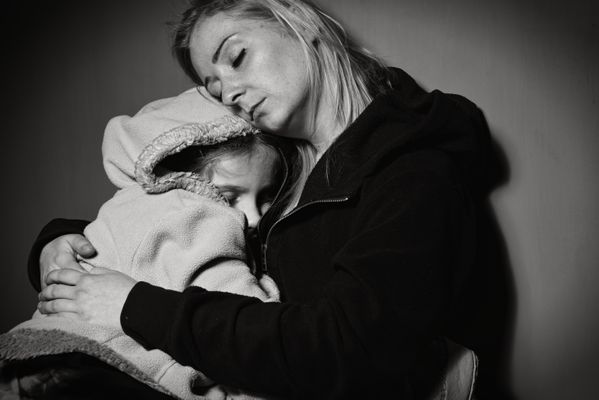5.3.5
Inequalities in Access 2
Gender and Access to Healthcare
Gender and Access to Healthcare
Inequalities in access to healthcare concern themselves with whether or not people have equal opportunity to make use of the services they require and need or whether some are less effective than others in getting their need met.


Women
Women
- Women access healthcare more than men.
- Women’s socialisation encourages them to take better care of themselves.
- Women are more willing to report physical and mental health problems to their GP.


Men
Men
- Men are less likely to access healthcare than women.
- Men have a greater fear of consulting doctors.
- Men are more likely to believe that healthcare services have less to offer them, especially in regards to mental health.
Ethnicity and Access to Healthcare
Ethnicity and Access to Healthcare
Inequalities in access to healthcare concern themselves with whether or not people have equal opportunity to make use of the services they require and need or whether some are less effective than others in getting their need met.


Education
Education
- Ethnic minorities are less likely than other groups to access healthcare for a number of reasons.
- Poorer levels of education and social marginalisation means that they may not be aware of, or understand how to take advantage of, the healthcare services available.


Language
Language
- Language, communication and culture differences may result in poorer levels of engagement and understanding between ethnic minority patients and healthcare staff.


Cultural diversity
Cultural diversity
- Lack of cultural diversity in the healthcare workforce might mean that patients are unable to see a healthcare professional who speaks their language or understands their culture, leading to lower levels of empathy and less patient satisfaction.


Stigma
Stigma
- Stigma and lack of trust.
- For example in the Roma and traveller community, discrimination and harassment have led to a fear and distrust of authority.
1Theory & Methods
1.1Sociological Theories
1.2Sociological Methods
2Education with Methods in Context
2.1Role & Function of the Education System
2.2Educational Achievement
2.3Relationships & Processes Within Schools
3Option 1: Culture & Identity
3.1Conceptions of Culture
3.2Identity & Socialisation
3.3Social Identity
3.4Production, Consumption & Globalisation
4Option 1: Families & Households
4.1Families & Households
4.2Changing Patterns
4.3The Symmetrical Family
4.4Children & Childhood
5Option 1: Health
5.1Social Constructions
5.2Social Distribution of Healthcare
5.3Provision & Access to Healthcare
5.4Mental Health
6Option 1: Work, Poverty & Welfare
6.1Poverty & Wealth
7Option 2: Beliefs in Society
7.1Ideology, Science & Religion
7.2Religious Movements
7.3Society & Religion
8Option 2: Global Development
8.1Development, Underdevelopment & Global Inequality
8.2Globalisation & Global Organisations
8.3Aid, Trade, Industrialisation, Urbanisation
9Option 2: The Media
9.1Contemporary Media
9.2Media Representations
10Crime & Deviance
10.1Crime & Society
10.2Social Distribution of Crime
Jump to other topics
1Theory & Methods
1.1Sociological Theories
1.2Sociological Methods
2Education with Methods in Context
2.1Role & Function of the Education System
2.2Educational Achievement
2.3Relationships & Processes Within Schools
3Option 1: Culture & Identity
3.1Conceptions of Culture
3.2Identity & Socialisation
3.3Social Identity
3.4Production, Consumption & Globalisation
4Option 1: Families & Households
4.1Families & Households
4.2Changing Patterns
4.3The Symmetrical Family
4.4Children & Childhood
5Option 1: Health
5.1Social Constructions
5.2Social Distribution of Healthcare
5.3Provision & Access to Healthcare
5.4Mental Health
6Option 1: Work, Poverty & Welfare
6.1Poverty & Wealth
7Option 2: Beliefs in Society
7.1Ideology, Science & Religion
7.2Religious Movements
7.3Society & Religion
8Option 2: Global Development
8.1Development, Underdevelopment & Global Inequality
8.2Globalisation & Global Organisations
8.3Aid, Trade, Industrialisation, Urbanisation
9Option 2: The Media
9.1Contemporary Media
9.2Media Representations
10Crime & Deviance
10.1Crime & Society
10.2Social Distribution of Crime
Unlock your full potential with Seneca Premium
Unlimited access to 10,000+ open-ended exam questions
Mini-mock exams based on your study history
Unlock 800+ premium courses & e-books


Social Class and Access to Healthcare
Inequalities in access to healthcare concern themselves with whether or not people have equal opportunity to make use of the services they require and need or whether some are less effective than others in getting their need met.
Causes of inequality
Causes of inequality cont.
Quality of healthcare
Accessing quality healthcare
Accessing quality healthcare 2